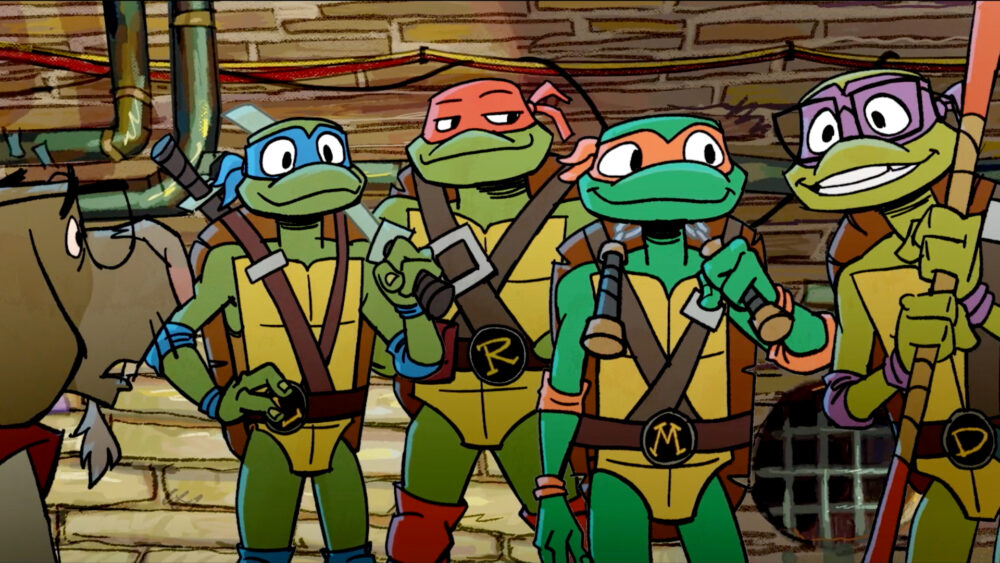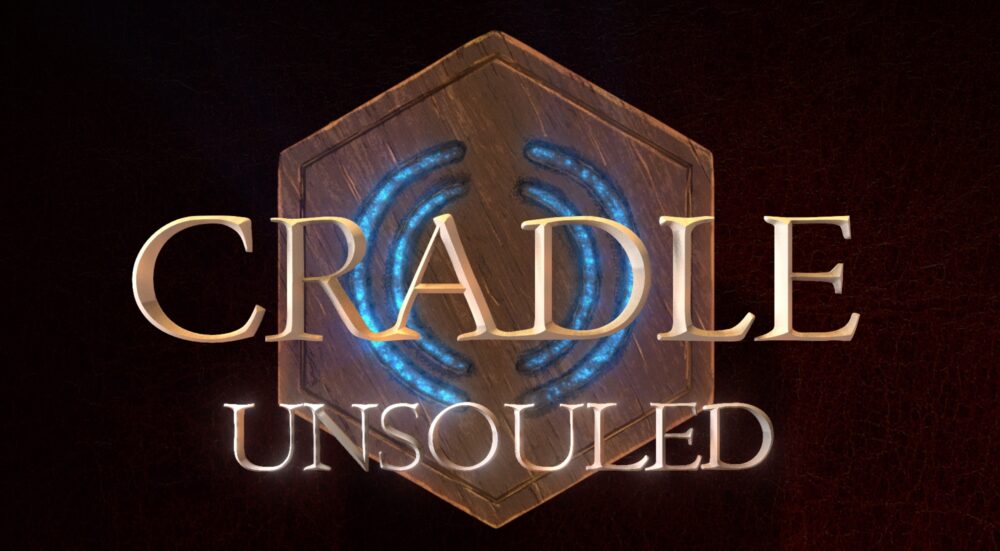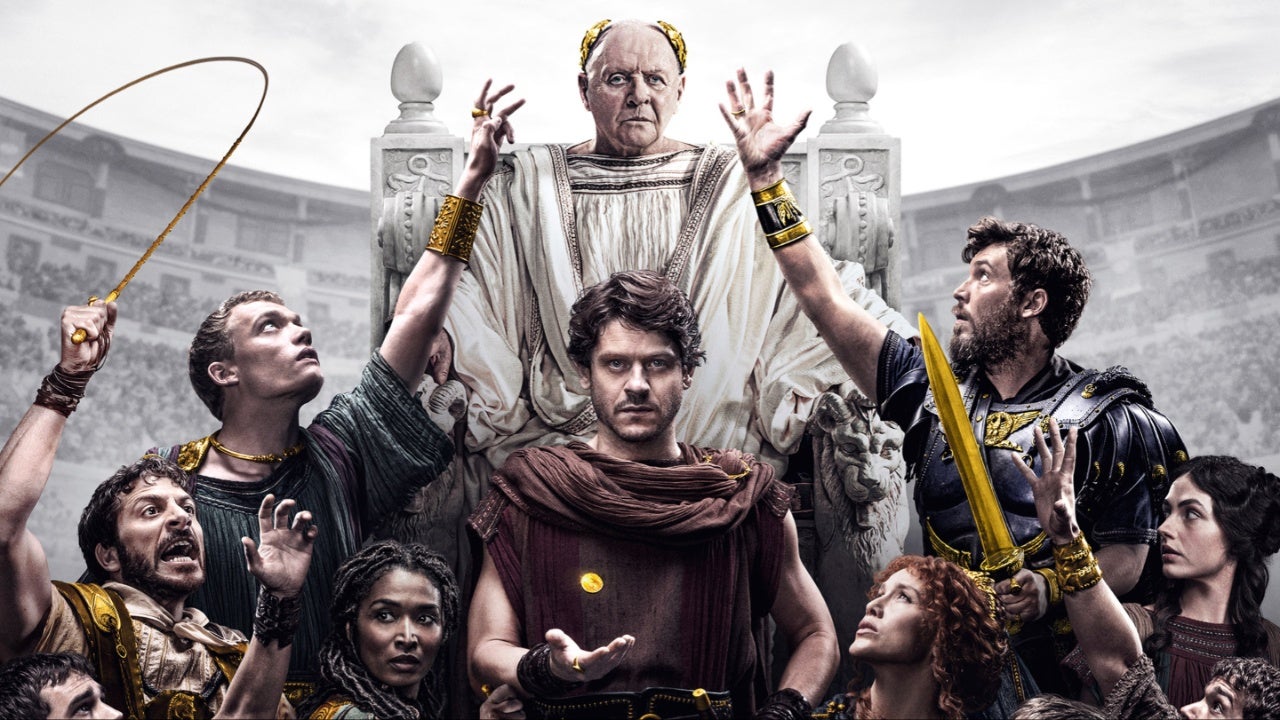Iconic screenwriter-director-producer James L. Brooks, whose acclaimed films include Terms of Endearment, Broadcast News, and As Good As It Gets, has been named the recipient of the Writers Guild of America West’s 2018 Laurel Award for Screenwriting Achievement in recognition of his extraordinary career and body of work. He will be honored at the 2018 Writers Guild Awards West Coast ceremony on Sunday, February 11, at The Beverly Hilton in Beverly Hills.
“James L. Brooks looms large for writers in our business. His movie scripts walk a razor’s edge; they are comedies that are tinged with tragedy, they have moments of absurdity mixed with sharply observed truths. The beauty of his work is that you never hear the writer behind it, his characters talk like real people and his scripts feel like life. We at the WGAW Board of Directors consider it our honor to give him this award,” said WGAW President David A. Goodman.
One of the most revered and influential creative artists in film and television, Brooks is a three-time Academy Award winner, an 18-time Emmy Award winner, and four-time Writers Guild Award winner.
Brooks launched his TV writing career during the mid-’60s, landing a gig writing for CBS News broadcasts based in New York, before moving to Los Angeles to pen several episodes of The Wolper Specials documentary series. He then segued into scripted programming, writing for numerous TV series, including Men in Crisis, My Mother the Car, My Three Sons, The Andy Griffith Show, and That Girl, which earned him his first WGA Episodic Comedy nomination in 1968.
A WGAW member since 1965, Brooks soon emerged as a major force in television, going on to create or co-create, write, and produce numerous hit television series that helped define an era, including the ground-breaking The Mary Tyler Moore Show (1970-77, Created by Brooks and Allan Burns) – one of the first primetime TV series to feature an independent working woman at its center – and its trio of hit spin-offs, Rhoda (1974-78, Created by Brooks & Allan Burns, Developed by David Davis & Lorenzo Music), Lou Grant (1977-82, Created by Brooks and Allan Burns and Gene Reynolds, Developed by Leon Tokatyan), and Phyllis (1975-77, Created by Ed Weinberger & Stan Daniels) – as well as Taxi (1978-83, Created by Brooks and Stan Daniels and David Davis and Ed Weinberger).
After an extensive and prolific career in television during the ’60s and ’70s, Brooks made the transition to the big screen at the close of the decade, penning the screenplay for 1979’s Starting Over, based on the novel by Dan Wakefield, which he co-produced with Alan J. Pakula, which earned Brooks a WGA screenplay nomination (Comedy Adapted from Another Medium).
He went on to write, direct, and produce the acclaimed 1983 dramedy classic, Terms of Endearment, adapted from the novel by Larry McMurtry. The film, which garnered eleven Oscar nominations, earned Brooks three Academy Awards, including Best Writing (Screenplay Based on Material from Another Medium), Best Director, and a Best Picture Oscar, as well as a Writers Guild Award for his screenplay (Best Comedy Adapted from Another Medium) and a Golden Globe for Best Screenplay. Terms co-stars Jack Nicholson and Shirley MacLaine also earned Best Actor and Best Actress Oscars for their performances.
Next, he wrote, directed, and produced 1987’s Broadcast News, a sharp, incisive behind-the-scenes glimpse of a network TV news room based on his own experiences, which won the New York Dramas Critics Award for Best Picture and Best Screenplay, received Oscar noms for Best Picture and Best Original Screenplay, and earned WGA and Golden Globe screenplay noms.
Through his own Gracie Films production banner, established in 1984, Brooks executive produced the feature film Say Anything…, which was Cameron Crowe’s directorial debut, produced The War of the Roses (screenplay by Michael Leeson) and produced Big with Robert Greenhut, which was Anne Spielberg & Gary Ross’ first screenplay.
Brooks made a leap to the stage, writing, directing, and producing his debut play, “Brooklyn Laundry,” which premiered in Los Angeles in 1990. That same year, Brooks’ production company, Gracie Films, inked an overall deal with Sony Pictures. He produced two new series for ABC – primetime animated series The Critic and Phenom – as well as directed the innovative musical dramedy feature film, I’ll Do Anything. In 1996, Brooks executive produced, Bottle Rocket, the debut film co-written and directed by Wes Anderson, and produced Jerry Maguire, written and directed by Cameron Crowe, sharing a Best Picture Oscar nomination.
In 1997, Brooks co-wrote, produced, and directed the box-office smash, As Good As It Gets (Screenplay by Mark Andrus and James L. Brooks, Story by Mark Andrus). The well-received film received seven Academy Award nominations, including Best Picture and Best Writing (Screenplay Written Directly for the Screen), as well as Best Actor and Best Actress wins for co-stars Jack Nicholson and Helen Hunt. Brooks also earned a Writers Guild Award (Best Screenplay Written Directly for the Screen), shared with co-screenwriter Andrus.
Following up the critical and commercial success of As Good As It Gets, Brooks wrote and directed the 2004 dramedy Spanglish, and in 2007 Brooks co-wrote and produced The Simpsons Movie, the big-screen version of Fox’s hit animated series, the longest-running scripted series on television to date. In 2010, Brooks wrote and directed the romantic comedy How Do You Know, and most recently produced the 2016’s Edge of Seventeen, written and directed by Kelly Fremon Craig, making her directorial debut.
Brooks’ other TV writing credits include creating the trail-blazing high school drama Room 222, which aired from 1969-1974 and was notable as one of the first TV series to feature a black male in a lead role, as well as co-creating The Tracy Ullman Show (Created by Brooks, Jerry Belson, Ken Estrin, Heide Perlman), a boundary-pushing comedy-variety series which ran from 1987-1990 and debuted The Simpsons characters in a series of inspired animated shorts, which ultimately led to the launch of The Simpsons animated TV series (Created by Matt Groening, Developed by Brooks, Matt Groening, Sam Simon) that would leave an indelible mark on pop culture, and the telefilm, Thursday’s Game, which he wrote and produced. Brooks was also part of the writing team for TV’s Stand Up to Cancer telethons in 2008 and 2010, which raised millions to combat cancer.
In addition to his acclaimed film career, Brooks has received numerous accolades for his work on television: In addition to multiple Emmy noms for his work on The Mary Tyler Moore Show, including noms Outstanding New Series and Outstanding Comedy Series for its debut season, and WGA Episodic Comedy noms for MTM in 1973 and 1978, Brooks earned an Emmy for Outstanding Writing Achievement in Comedy (shared with Allan Burns) in 1971, a trio of shared Emmys for Outstanding Comedy Series in 1975, 1976, and 1977, as well as a ’77 Emmy for Outstanding Writing in a Comedy Series for the series’ memorable final episode, “The Last Show” (shared with co-writers Burns, Ed Weinberger, Stan Daniels, David Lloyd, and Bob Ellison). In addition, MTM spin-off shows – from sitcom (Rhoda) to drama (Lou Grant) – earned Brooks Emmy noms for Outstanding Drama Series (Lou Grant, 1978) and Outstanding Comedy Series and Outstanding Writing in a Comedy Series (Rhoda, 1975).
Brooks followed his MTM run by garnering three Outstanding Comedy Series Emmys for the critically acclaimed comedy series Taxi in 1979, 1980, and 1981. In addition to multiple Emmy noms, Brooks shared an Emmy win for Outstanding Variety, Music or Comedy Program for The Tracey Ullman Show in 1989, as well as an Emmy for Outstanding Writing in a Variety or Music Program in 1990. As a co-developer and executive producer of Fox’s The Simpsons, Brooks has received numerous Emmy noms over the show’s decades-long run and earned ten shared Emmys for Outstanding Animated Program between 1990 and 2008.
In 1998, Brooks received the WGAW’s Paddy Chayefsky Laurel Award for Television Writing Achievement, the Guild’s highest honor for television writing, shared with his frequent TV writing partner Allan Burns. In 2006, Brooks received the WGAE’s Herb Sargent Award for Comedy Excellence, given to a writer who “embodies the spirit, commitment, and comic genius” of the late Sargent.
In 2007, he received the Gold Derby TV Award for lifetime achievement, in 2015 he received TCA’s Career Achievement Award, and in 2017 received the PGA’s Lifetime Achievement Award in Television for his prolific career.
Next up, Brooks is in the home stretch to finish his latest screenplay.
The WGAW’s Laurel Award for Screenwriting Achievement is awarded to a Writers Guild member who has advanced the literature of motion pictures and made outstanding contributions to the profession of the screenwriter. Past recipients include Elaine May, Oliver Stone, Harold Ramis, David Mamet, Robert Towne, Tom Stoppard, Paul Mazursky, Lawrence Kasdan, Eric Roth, and Steven Zaillian.

Events
Paramount+ Reveals Official Main Title Sequence for the Upcoming Series TALES OF THE TEENAGE MUTANT NINJA TURTLES

During the TALES OF THE TEENAGE MUTANT NINJA TURTLES panel earlier today at San Diego Comic Con, Paramount+ revealed the official main title sequence for the series. The sequence is composed by EMMY® nominee, Matt Mahaffey, known for his work on Sanjay and Craig, Rise of the Teenage Mutant Ninja Turtles, and Rise of the Teenage Mutant Ninja Turtles: The Movie and much more.
From the studios of the Mutant Mayhem film, the all-new Paramount+ original series TALES OF THE TEENAGE MUTANT NINJA TURTLES explores the adventures of everyone’s favorite pizza-loving heroes as they emerge from the sewers onto the streets of NYC. Leo, Raph, Donnie and Mikey are faced with new threats and team up with old allies to survive both teenage life and villains lurking in the shadows of the Big Apple. The series is produced by Nickelodeon Animation and Point Grey Pictures.
TALES OF THE TEENAGE MUTANT NINJA TURTLES is executive produced by Chris Yost (The Mandalorian, Thor: Ragnarok) and Alan Wan (Blue Eye Samurai, Rise of the Teenage Mutant Ninja Turtles, Teenage Mutant Ninja Turtles [2012 Series]). Production is overseen for Nickelodeon by Claudia Spinelli, Senior Vice President, TV Series Animation, Nickelodeon, and Nikki Price, Director of Development and Executive in Charge of Production.
In addition to the upcoming new series, stream all things Turtles on Paramount+.
Events
Comic-Con 2024: Those About to Die Activation
Events
DISNEY+ CASTS DANIEL DIEMER AS FAN-FAVORITE ‘TYSON’IN SEASON TWO OF “PERCY JACKSON AND THE OLYMPIANS”

in Hall H at San Diego Comic-Con, Rick Riordan and Disney+ revealed that Daniel Diemer (“Under the Bridge”) will star as fan-favorite cyclops “Tyson” in the epic adventure series “Percy Jackson and the Olympians.” Diemer joins Walker Scobell (Percy Jackson), Leah Sava Jeffries (Annabeth Chase) and Aryan Simhadri (Grover Underwood) as a series regular. The Disney+ Original series from Disney Branded Television and 20th Television will start filming its second season next week in Vancouver.
Season two of “Percy Jackson and the Olympians” is based on the second installment of Disney Hyperion’s best-selling book series titled “The Sea of Monsters” by award-winning author Rick Riordan. In the new season, Percy Jackson returns to Camp Half-Blood one year later to find his world turned upside down. His friendship with Annabeth is changing, he learns he has a cyclops for a brother, Grover has gone missing, and camp is under siege from the forces of Kronos. Percy’s journey to set things right will take him off the map and into the deadly Sea of Monsters, where a secret fate awaits the son of Poseidon.
Diemer stars as Tyson – a young Cyclops who grew up all alone on the streets, and finds it difficult to survive in the human world. Shy and awkward, with a heart almost as big as he is, Tyson soon discovers that Poseidon is his father, which means Percy Jackson is his half-brother… and that Tyson may have finally found a home.
Diemer recently starred in the Hulu limited series “Under the Bridge” based off the critically acclaimed book of the same name and a tragic true story of a missing teen girl in Vancouver in 1997. He will next star in the indie “Thug” opposite Liam Neeson and Ron Perlman for director Hans Petter Moland. Daniel was recently seen as the lead in the indie “Supercell” opposite Alec Baldwin and Skeet Ulrich and the lead in the film “Little Brother” opposite Phil Ettinger and JK Simmons. Daniel can also be seen in the Netflix series “The Midnight Club” and recently starred as the male lead in the breakout hit Netflix feature “The Half Of It” from producer Anthony Bregman and director Alice Wu. He is a graduate of Victoria Academy of Dramatic Arts in Vancouver.
Created by Rick Riordan and Jonathan E. Steinberg, season two of “Percy Jackson and the Olympians” is executive produced by Steinberg and Dan Shotz alongside Rick Riordan, Rebecca Riordan, Craig Silverstein, The Gotham Group’s Ellen Goldsmith-Vein, Bert Salke, The Gotham Group’s Jeremy Bell and D.J. Goldberg, James Bobin, Jim Rowe, Albert Kim, Jason Ensler and Sarah Watson.
The first season of “Percy Jackson and the Olympians” is available on Disney+
-

 Interviews1 day ago
Interviews1 day agoInterview With Heroes & Villains Creative Director Doug Johnson
-

 Streaming1 day ago
Streaming1 day agoApple TV+ announces season two for delightful kids and family series “Camp Snoopy
-

 Events1 day ago
Events1 day agoThat’s My E Coverage Of The Adult Swim’s Pirate Parrrty
-

 Events9 hours ago
Events9 hours agoParamount+ Reveals Official Main Title Sequence for the Upcoming Series TALES OF THE TEENAGE MUTANT NINJA TURTLES
-

 Interviews13 hours ago
Interviews13 hours agoComic-Con 2024: Will Wight’s Cradle
-

 Events12 hours ago
Events12 hours agoDISNEY+ CASTS DANIEL DIEMER AS FAN-FAVORITE ‘TYSON’IN SEASON TWO OF “PERCY JACKSON AND THE OLYMPIANS”
-

 Events12 hours ago
Events12 hours agoComic-Con 2024: Those About to Die Activation


